Ray Hahn
The Story of the Lorelei
A short-story I read many years ago featured a music professor, affiliated with a large university, who had read a headline in his local newspaper and was afterward plagued by hearing unremembered music play over and over in his mind. The proper term for his malady is “musical earworm.” We have all had this happen, a tune repeats in our brain and foists itself on every unoccupied moment of our day; then for no apparent reason it suddenly disappears and is forgotten. The professor’s unremembered tune was Song of the Lorelei, a popular concert piece.
The story gained high praise because its theme resonates with so many readers. I was amused with the story and as I often do, I try to remember the postcards in my collection on that topic. My collection is quite broad in topics and music is one of the broadest, ranging from concert halls to composers and opera, and singers and conductors. As I searched, I found this card – Der Rhein and it reminded me of a long ago trip when Marie and I found ourselves on the banks of the Rhine River fully expecting to hear a siren’s call, but didn’t.
Unlike the figure whose hair is blowing in the wind, it was still the day of our visit. It was quiet, as they say, as a tomb.
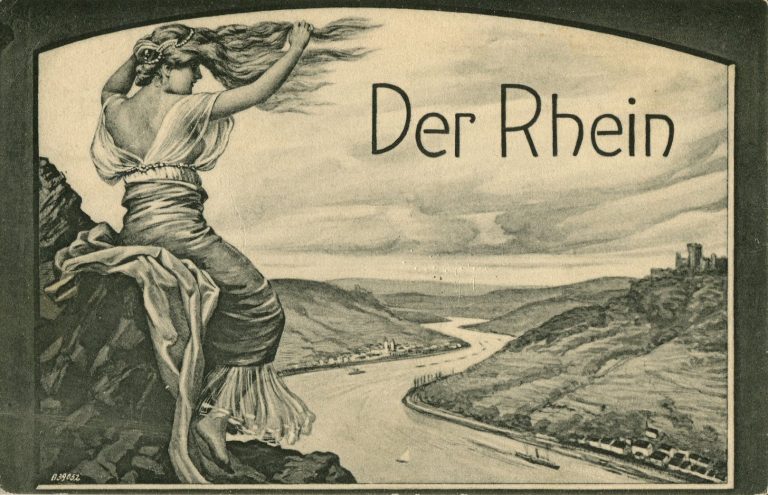
Der Rhein “The Rhine”
The Lorelei is a rock formation on the eastern bank of the Rhine River near Saint Goarshausen, Germany. It rises more than 360 feet above the water at the narrowest point of the river’s path between Switzerland and the North Sea. The summit of the rock is the most visited and the most famous feature of the Rhine River Gorge, a fifty mile section of the river that was added to the list of UNESCO World Heritage Sites in 2002.
Because of the natural landfall, the river runs through the gorge at an extremely fast rate. The fast current coupled with a complex configuration of submerged rock makes navigation extremely difficult and hazardous. Throughout the centuries, these challenging conditions have caused many river sailors to lose their cargoes and their lives.
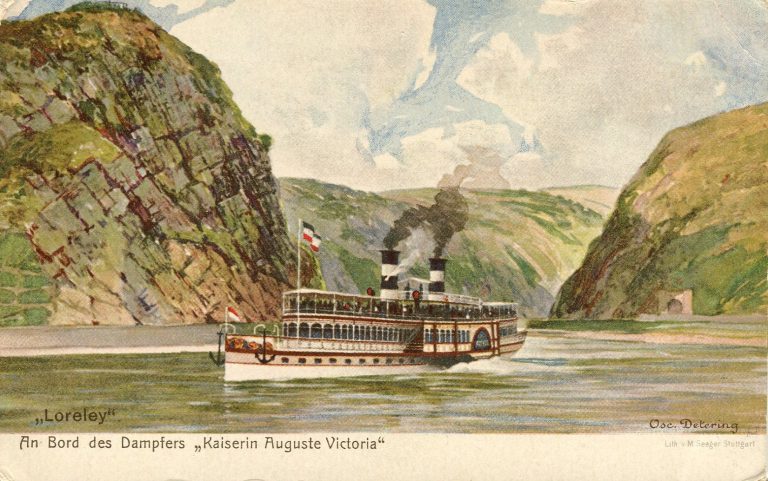
Der Rhein “The Rhine”
Lorelei is also a name for water spirits, similar to mermaids. In Germany, the Rhinemaidens described in folklore and portrayed in works of music, art, and literature are beautiful maidens who attract the attention of men more inclined to romance than commerce.
The name, Lorelei comes from an old German (or Rhine dialect) word “lureln,” for murmuring, and the Celtic word “leu” for rock. The translation of the name would therefore be “murmur rock” or “murmuring rocks.”
An array of Lorelei Postcards would include the following by manufacturers from several countries.
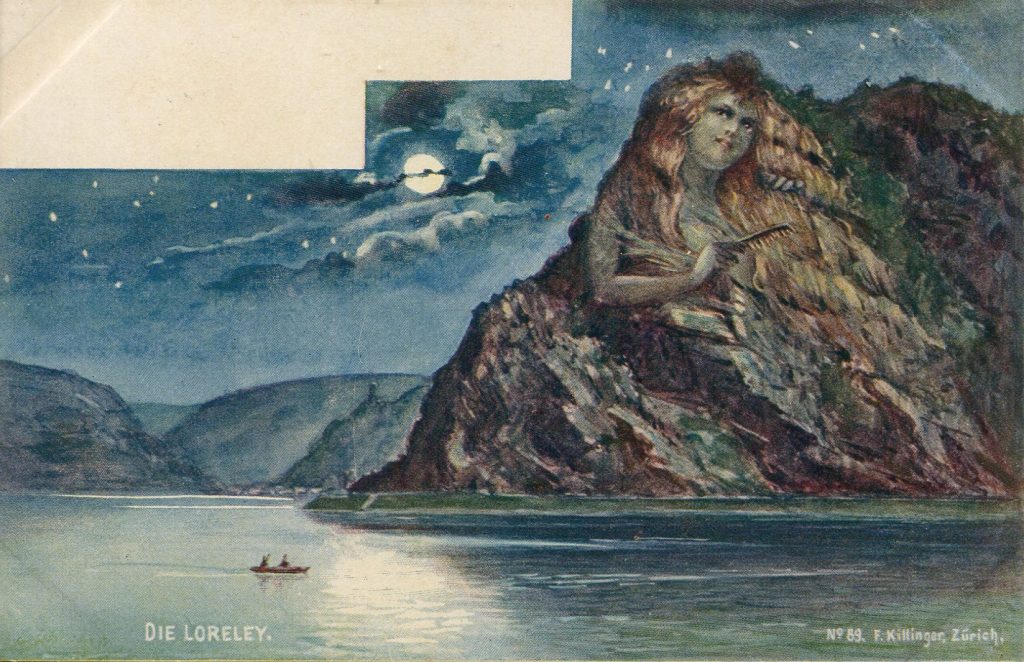
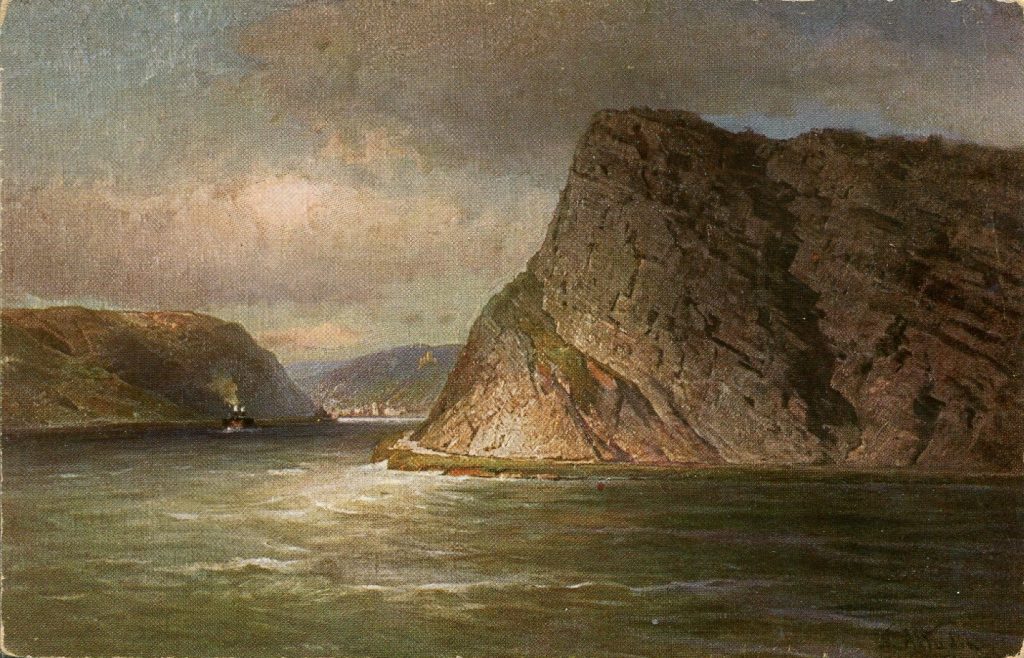
The Austrian card entitled, Die Loreley, is a moonlighted scene that portrays a quiet night when a small boat navigates the river for a face-front look at the “hidden” spirit.
The untitled German card shows an early-evening view of the river when the waters are roiled by an approaching storm.

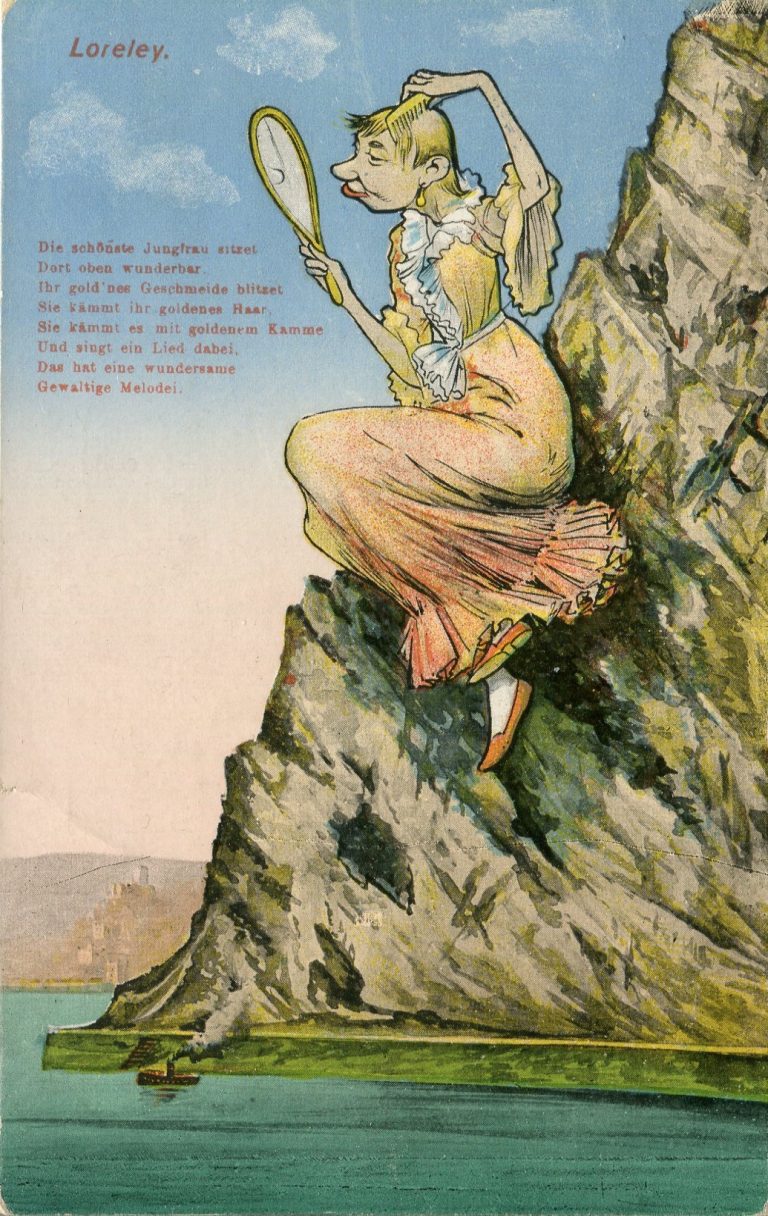
These German cards suggest that the legend can be told in humorous ways, nothing is always gloom and doom. The card of the Rhinemaiden is postmarked 1932.
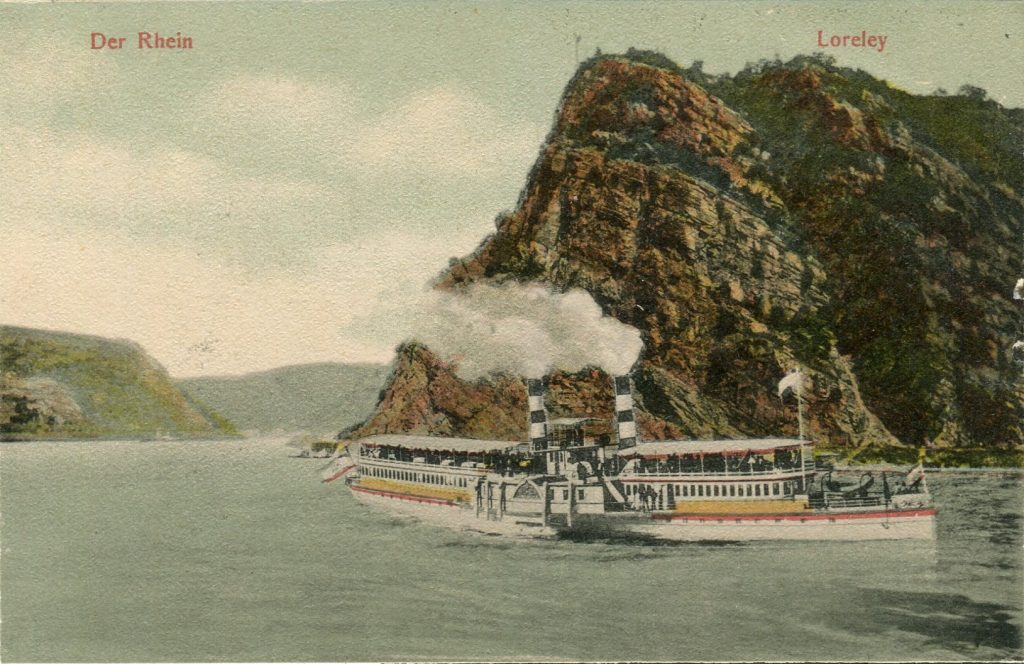
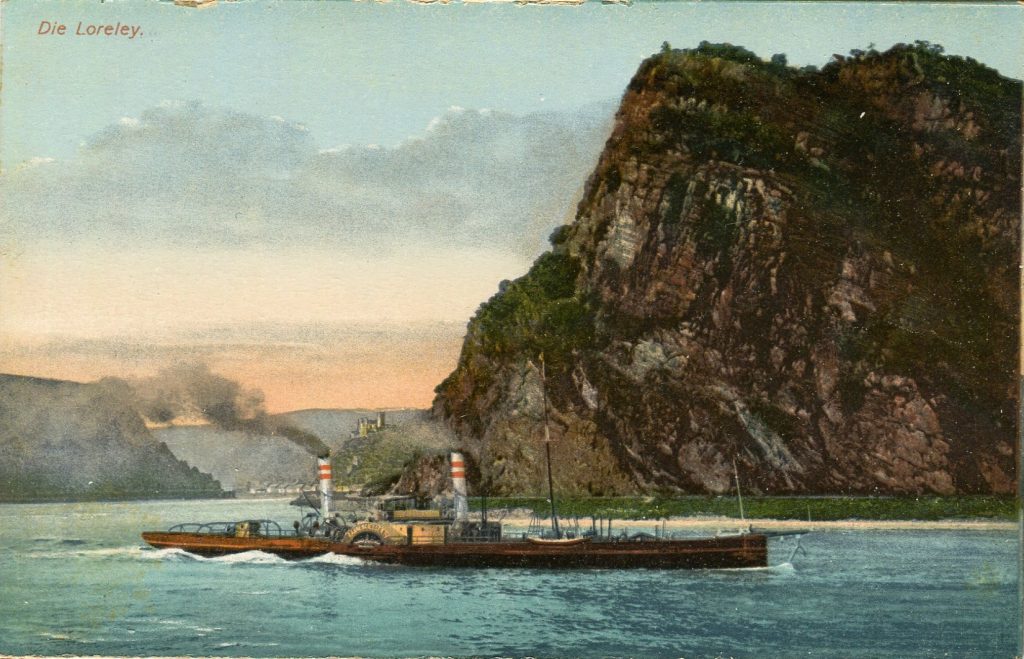
These colored photographs are lithographs from the 1930s, one from Mainz shows a river tourboat, the other from Koln shows a side-wheeler freighter.
Listen for the Song of the Lorelei. If you hear it, paddle as fast as you can in the opposite direction.
The articles I read were extremely interesting. The cards were great. I too write PC ARTICLES FOR Colectors Journal in Iowa. I did write for Postcard World mag, and Antique and Auction News plus their PAC MAG. Keep up the good work for DELTIOLOGICAL ADVANCEMENT!!!!!!
I first heard the word “Lorelei” as the name of an animated chicken in the old PBS series “The Electric Company”, which was devoted to teaching kids to read. I also had a waitress named Lorelei when I ate at a diner in New Jersey many years ago.